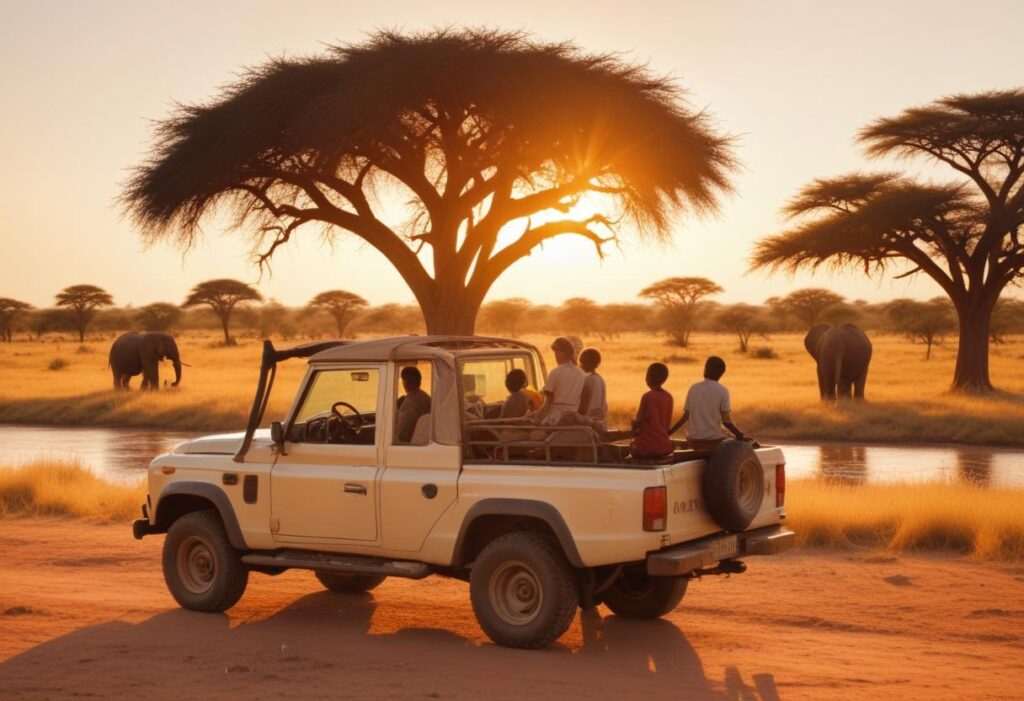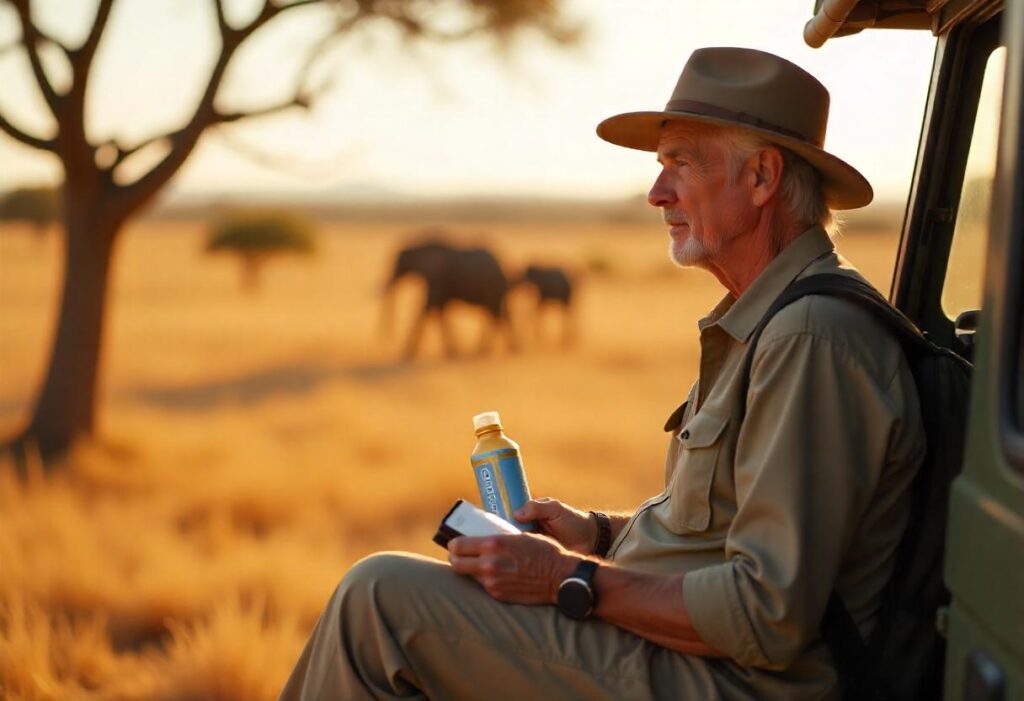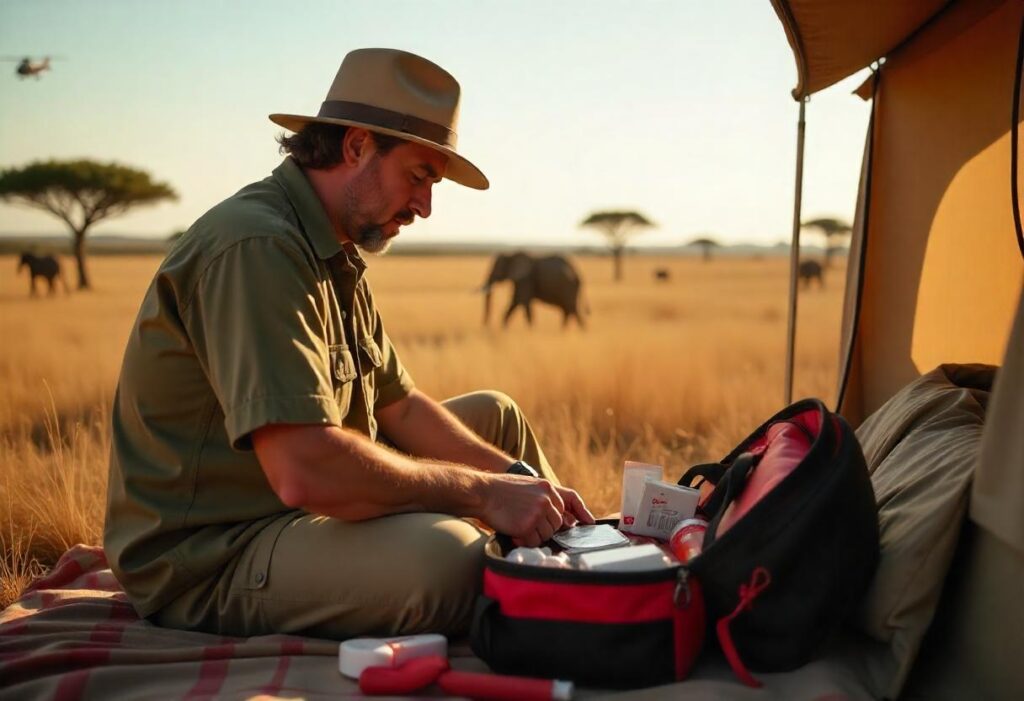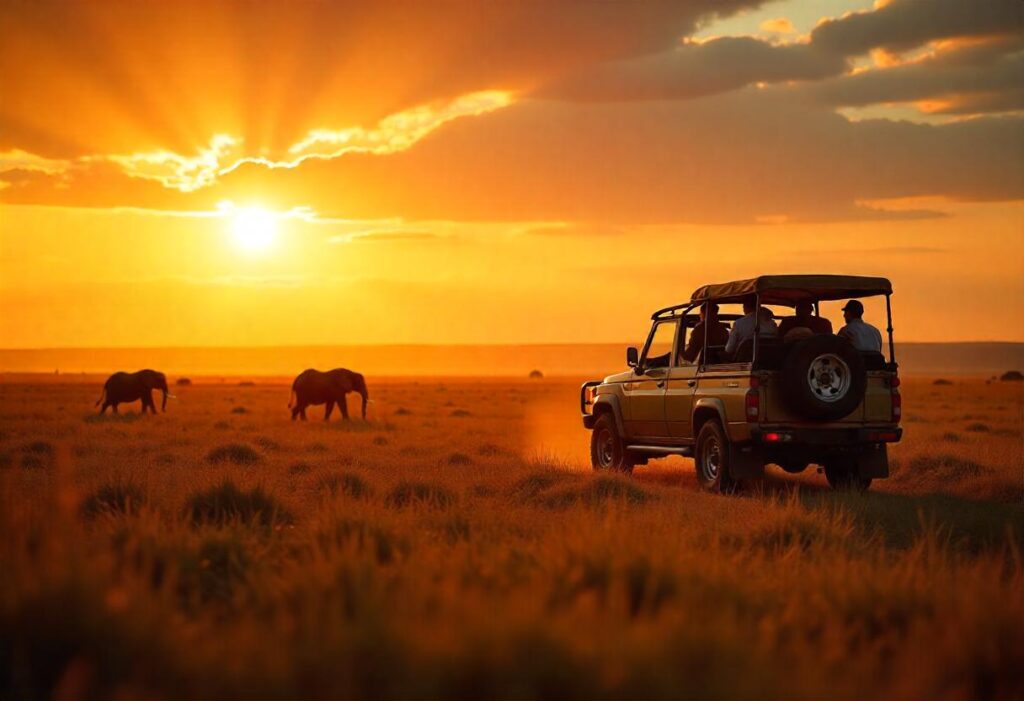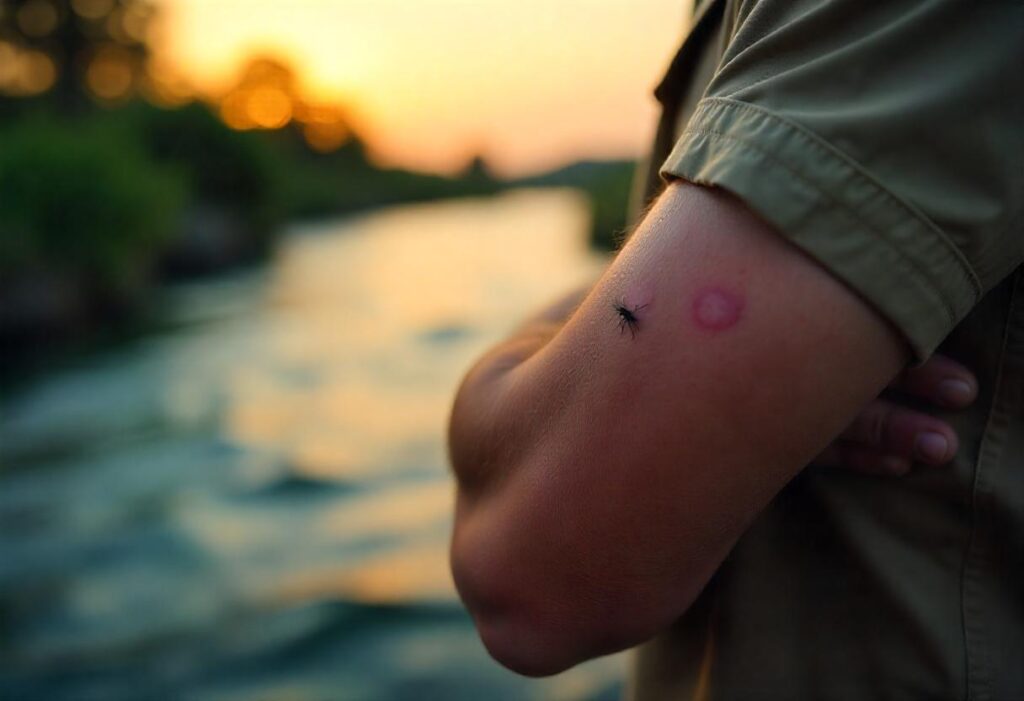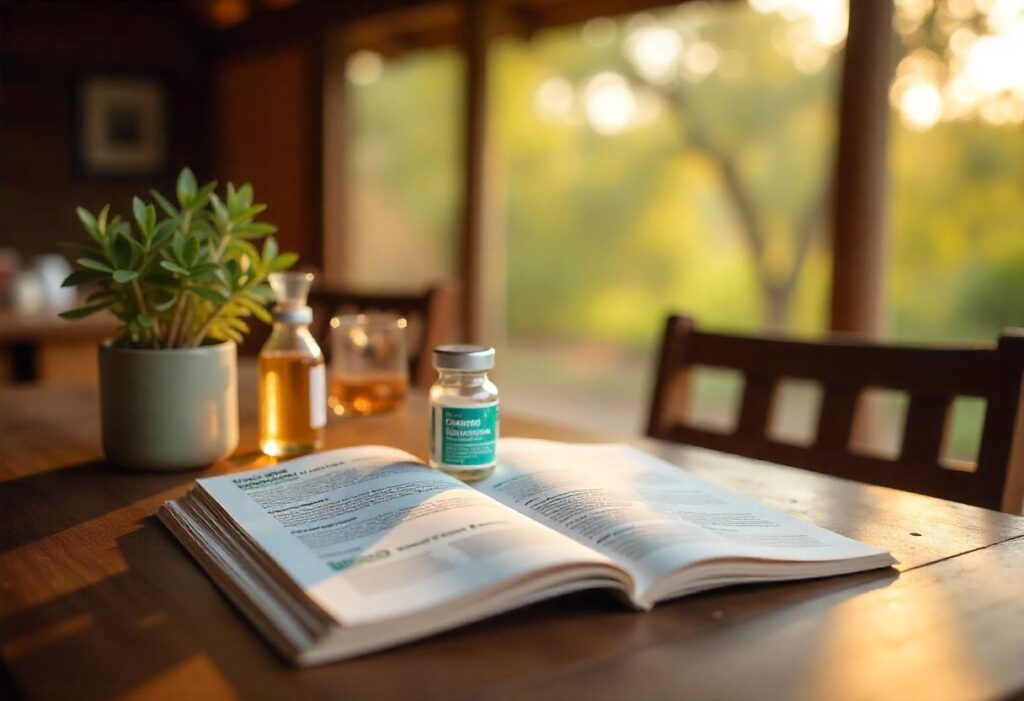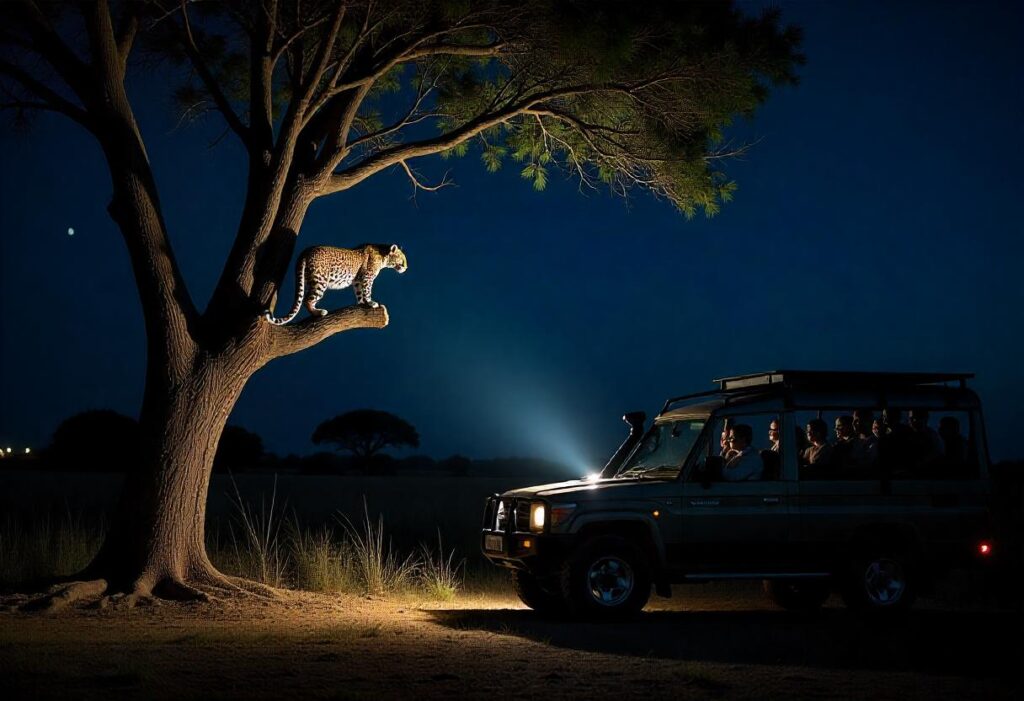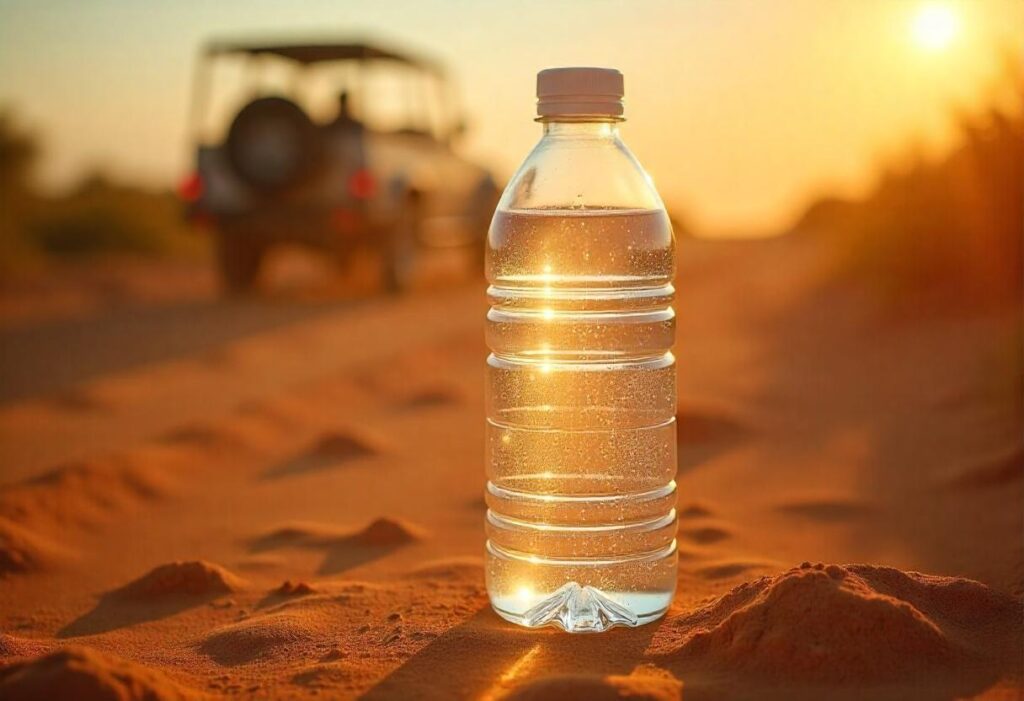
Health and safety on safari: what every traveler should know
Staying safe and healthy is essential to enjoying your safari to the fullest. With expert tips and practical advice, you can travel confidently and focus on what really matters—your safari experience.
Stay informed. Stay safe. Travel smart.
Planning a safari isn’t just about booking lodges and dreaming of lions—it’s also about understanding how to stay safe and healthy in remote, wild places. In this section, you’ll find trusted advice on everything from insect protection and vaccinations to travel insurance and emergency response in the bush.
Whether it’s your first time on safari or your fifth, the right preparation makes all the difference. Learn how to minimize risks, respond to the unexpected, and make informed choices that protect your health, safety, and peace of mind—so you can enjoy every moment of your adventure.
Health and safety essentials for your African safari
When heading into the wilderness, preparation is more than a checklist—it’s peace of mind. From vaccinations to emergency planning, this section helps you understand the key health and safety aspects of a safari. It’s not about overplanning or worrying; it’s about knowing what to expect so you can focus on enjoying the adventure.
Different regions, different risks
Not all safari destinations carry the same health risks. For example, malaria is present in parts of Zambia, Tanzania, and Botswana—but not in areas like Namibia’s desert parks or South Africa’s Eastern Cape. Understanding the health profile of your destination helps you take the right precautions without unnecessary stress.
Wildlife safety: it's about awareness, not fear
Animals in Africa are wild—but that doesn’t mean your trip is dangerous. Most safari accidents happen when travelers ignore basic safety rules. Whether you’re in a vehicle, walking with a guide, or at a tented camp, knowing how to behave around wildlife keeps everyone safe—including the animals.
What to do in case of emergency
Safaris often take place in remote areas far from hospitals. That’s why medical evacuation services, satellite communications, and reliable guides are so important. If you or someone in your group needs urgent care, having the right insurance and knowing the available services can make a critical difference.
Travel insurance: more important than you think
A good safari travel insurance policy should cover trip cancellation, emergency evacuation, medical expenses, and lost luggage. Some even include coverage for adventure activities like bush walks or hot-air ballooning. Make sure your provider understands the nature of your trip and the regions you’re visiting.
Browse Safaris by Tags
Explore our content by theme: whether you’re interested in Big Five safaris, family-friendly trips, or gorilla trekking, our tags help you find exactly what you’re looking for — fast.
Tags

Health and safety FAQs for your African safari
Planning a safari involves more than just choosing a destination. These frequently asked questions cover common concerns travelers have about health, medical prep, and safety in the bush—so you can feel informed and travel with confidence.
Do I need vaccinations to go on safari?
Yes, most safari destinations recommend or require vaccines like yellow fever, hepatitis A, typhoid, and tetanus. Requirements vary by country, so consult your travel clinic at least 6 weeks before departure.
Is malaria a risk everywhere in Africa?
No. While malaria is present in many safari regions, some areas—like Namibia, parts of South Africa, and high-altitude zones—are malaria-free. Knowing where you’re going helps determine if you need antimalarial medication.
Is it safe to drink the water on safari?
In most safari lodges and camps, drinking water is filtered and safe. However, bottled water is widely available, and it’s best to avoid tap water in towns or rural areas unless confirmed safe by your guide or host.
What happens if I get sick or injured in a remote area?
Safari operators are trained in first aid, and many lodges have emergency protocols. In serious cases, air evacuation to the nearest hospital is arranged—another reason why comprehensive travel insurance is essential.
Can I travel with health conditions like diabetes or asthma?
Yes, but you should consult your doctor before your trip and inform your safari operator in advance. Bring enough medication, and make sure it’s stored properly in hot or remote environments.
What kind of medical kit should I bring on safari?
A basic travel first aid kit should include pain relievers, antiseptics, insect repellent, antihistamines, diarrhea medication, blister care, and any prescription drugs you need. Some lodges provide kits, but it’s best to carry your own.
· Do you want to keep exploring? ·
Everything You Want to Know, Organized for You
Explore the many ways to experience Africa’s wild beauty. Whether you’re drawn to iconic destinations, rare wildlife, or unique travel styles, our guides are grouped to help you find exactly what you’re looking for.


